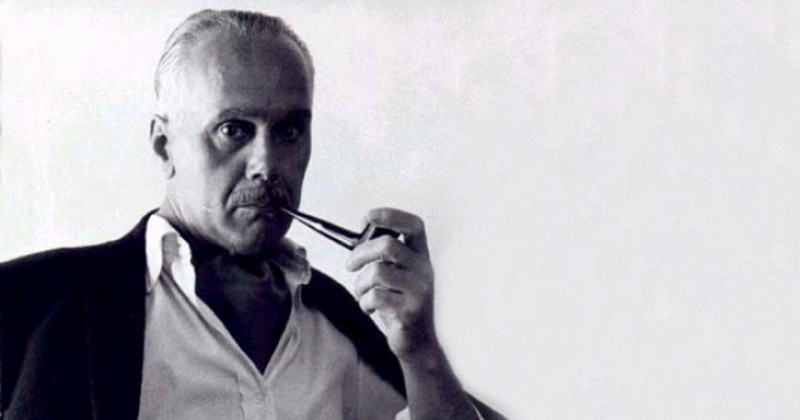The 20 best phrases of Luis Cernuda (and great verses)

We review the most famous thoughts of this poet of the Generation of '27.
Luis Cernuda (Seville, 1902 - Mexico City, 1963) was a prominent Spanish poet and literary critic, member of the so-called Generation of '27.
This Andalusian played a prominent role during the golden age of Spanish literature. A friend of Vicente Alexandre, Federico García-Lorca and Rafael Alberti, Cernuda's poetry ranged from surrealism to political criticism.
Luis Cernuda's Phrases
He spent his last years in Mexico, where he developed his conceptual poetry stage. Exiled from his native country because of the Civil War, he found love in the culturist Salvador Alighieri, to whom he dedicated several of his poems.
In today's article we are going to know the best phrases of Luis Cernuda, as well as some of his verses and quotes and famous quotes that have gone down in history.
You justify my existence: if I do not know you, I have not lived; if I die without knowing you, I do not die, because I have not lived.
A great declaration of unconditional love.
2. My eternal madness, imagining blissful, dreams of the future, hopes of love, sunny wanderings...
About his illusions of the future, which were partly cut short by the Spanish Civil War.
3. Security, that insect that nests in the frills of light...
Far from security is to explore, to live.
4. There, far away; where oblivion dwells.
From his homonymous work.
5. To return? Return he who has, after long years, after a long journey, tired of the road and greed, of his land, his home, his friends, of the love that awaits him on his faithful return.
To return is always pleasant, even if one leaves many things behind.
6. I do not know men. For years I have been looking for them and running away from them without remedy. I don't understand them, or do I understand them too much?
From the poem 'To a future poet', one of the most remembered.
7. Childhood ended and I fell into the world.
There is a day when one wakes up as an adult, with responsibilities and debts.
8. I will tell how you were born, forbidden pleasures, As a desire is born on towers of fear.
Verse by Luis Cernuda from his book "Peregrino", from one of his most fundamental works: "Los placeres prohibidos".
9. It is not love that dies, It is ourselves.
A great verse in which he shows us that without this feeling we probably no longer exist.
10. If man could say what he loves, If man could lift his love to the sky like a cloud in the light.
A great verse about hidden love.
11. If I die without knowing you, I do not die, because I have not lived.
Another excerpt from his work "Los placeres prohibidos", published in 1931.
12. The wound does not make the dead, it only makes an inert body.
Verse extracted from his work "Donde habite el olvido", 1932.
13. Unequivocal delight. That beauty does not surrender its abandonment to any owner.
From his book of poems "Égloga, elegía, oda", 1927.
14. Freedom I know only the freedom of being imprisoned in someone whose name I cannot hear without a shudder.
On sincere and passionate love.
15. Fatigue of being alive, of being dead, with cold instead of blood, with cold that smiles insinuating through the muffled sidewalks.
"A river, a love", from 1929.
16. Listen to the water, listen to the rain, listen to the storm; that's your life: liquid lament flowing between equal shadows.
Great metaphor that we can use to reflect deeply.
17. Cities, like countries and people, if they have something to tell us, they only require a certain amount of time; after that, they tire us out.
One of Luis Cernuda's most remembered and celebrated phrases.
18. Life is lived in time, your eternity is now, because later, there will be no time for anything.
On the immensity of life, if you know how to live intensely.
19. If man could say what he loves, if man could lift his love to the sky like a cloud in the light.
A verse from his book "If man could say what he loves".
20. In the south so distant I want to be confused. The rain there is but a half-open rose; Its mist itself laughs, white laughter in the wind.
Verse from "I would like to be alone in the south".
(Updated at Apr 14 / 2024)